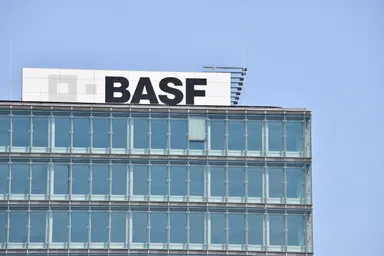Featured articles

DAX 40 continues to push to new highs
The DAX 40 sees six consecutive days of gains as the index pushes to new highs driven by risk-on sentiment
09:54, 12 January 2026

From Caracas to Wall Street: how the U.S.–Venezuela crisis could move markets
The start of the new year has marked a dramatic escalation in the United States’ confrontation with Venezuela.
08:53, 9 January 2026

Intel stock split: what it means for traders
Intel’s long history of stock splits reflects the company’s evolution through several major technology cycles, from early PC growth to data-centric expansion. With its most recent split taking place more than two decades ago, questions often arise about whether Intel may adjust its share structure again.
15:49, 19 December 2025

Apple stock forecast: Third-party price targets
Apple Inc is a US-based technology company listed on the Nasdaq under the ticker AAPL, generating revenue from hardware products such as the iPhone and Mac, alongside a growing global services business. Explore third-party AAPL price targets and technical analysis.
10 hours ago

BASF stock forecast: Third-party price targets
BASF SE is a Germany-based chemical producer listed in Frankfurt, supplying industrial chemicals, materials and agricultural products to customers across Europe, Asia and the Americas. Explore third-party BAS price targets and technical analysis.
11 hours ago

SAP stock forecast: Third-party price targets
SAP SE is a Germany-based multinational software company listed on the Frankfurt Stock Exchange and NYSE, specialising in enterprise resource planning (ERP) and cloud-based business applications. Explore third-party SAP price targets and technical analysis.
11 hours ago

Intel stock forecast: Q4 2025 earnings & price targets
Intel Corporation is a US-listed semiconductor manufacturer that designs and produces microprocessors, data centre chips and related technologies for consumer, enterprise and AI-focused computing markets worldwide. Explore third-party INTC price targets and technical analysis.
13 hours ago

Cooling but not cracking: The UK’s delicate economic balance
The UK economy is showing signs of fatigue with minimal growth and a slowing labour market, but inflation still remains above target.
10:38, 18 February 2026

Hong Kong 50 forecast: Third-party targets
The Hong Kong 50, a CFD that references the Hang Seng Index, tracks the performance of some of the largest and most actively traded Hong Kong-listed companies, making it a widely followed benchmark for regional equity markets.
14:20, 17 February 2026

Trading the Nasdaq 100 amidst the ‘AI Scare Trade’
Valuation, disruption and rotation have been short-term themes testing short-term technicals, though in sentiment traders remain majority buy.
10:52, 16 February 2026

Market Mondays: Volatility Dominates as Precious Metals Lead the Narrative
Markets trade with caution after the recent volatility as traders await the latest employment and inflation data from the US.
11:36, 9 February 2026

Oil Climbs as Geopolitical Risk Returns
Oil prices rise as markets price in a higher chance that the escalating conflict between Iran and the US could cause supply disruption.
11:26, 19 February 2026

Market Mondays: Volatility Dominates as Precious Metals Lead the Narrative
Markets trade with caution after the recent volatility as traders await the latest employment and inflation data from the US.
11:36, 9 February 2026

Are oil markets underestimating escalation risks between Iran and the US?
Oil markets have remained slightly subdued in recent weeks despite the rising tensions between the US and Iran.
12:13, 4 February 2026

Trading Silver’s 35% Pullback
Volatile technical overview has given conformist breakout strategies the clear edge as of late, while in sentiment it remains a majority buy story.
09:06, 2 February 2026

Cooling but not cracking: The UK’s delicate economic balance
The UK economy is showing signs of fatigue with minimal growth and a slowing labour market, but inflation still remains above target.
10:38, 18 February 2026

United States interest rate forecast: Third-party predictions
As the Federal Reserve adjusts policy, where might US interest rates be in five years?
14:51, 12 February 2026

NOK/PLN forecast: Third-party price targets
Norwegian krona Polish zloty (NOK/PLN) is a foreign exchange cross that compares Norway’s krone with Poland’s zloty, reflecting relative economic conditions and monetary policy in both countries.
14:46, 12 February 2026

Euro Lira forecast
The euro Turkish lira is a forex pair that tracks the euro against Turkey’s currency, often influenced by inflation trends, central bank policy and broader global market conditions. Explore third-party EUR/TRY forecasts and technical analysis.
14:43, 12 February 2026

Zcash price prediction: Third-party outlook
Zcash (ZEC) is a decentralised cryptocurrency launched in 2016, designed to offer optional transaction privacy, and it trades on major crypto exchanges against the US dollar and other digital assets. Explore third-party ZEC price targets and technical analysis.
12:08, 18 February 2026

Pi Network price prediction: Third-party outlook
Explore third-party PI price targets and technical analysis.
11:35, 18 February 2026

BitTorrent price prediction: Third-party outlook
BitTorrent (BTT) is a crypto token associated with the BitTorrent protocol and the Tron blockchain, trading at fractions of a US dollar within a market shaped by liquidity, regulation and broader crypto trends. Explore third-party BTT price targets and technical analysis.
12:25, 17 February 2026

Fartcoin price prediction: Third-party outlook
Fartcoin (FARTCOIN) is a Solana-based cryptocurrency that trades on digital asset exchanges and has recorded notable price volatility since launch, reflecting shifts in liquidity and broader crypto market conditions. Explore third-party FARTCOIN price targets and technical analysis.
11:08, 17 February 2026
